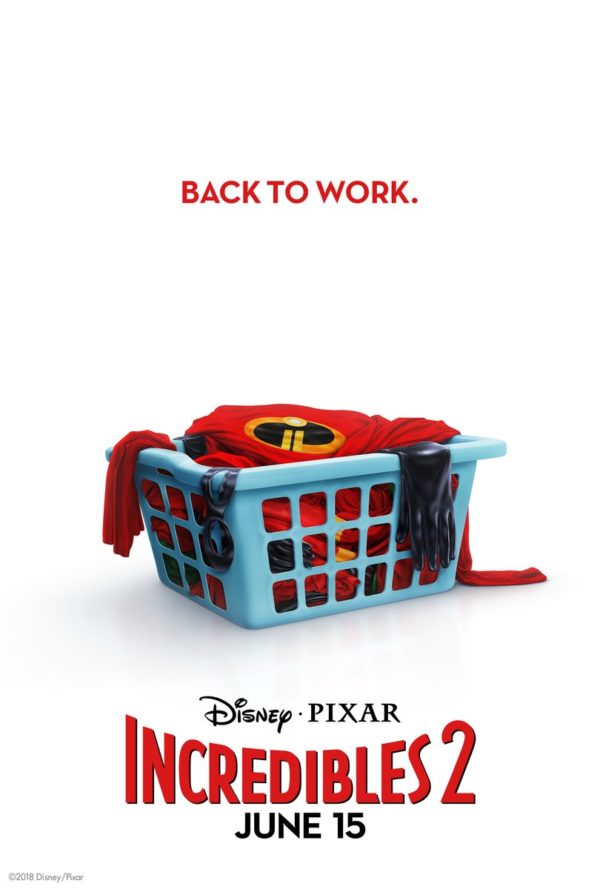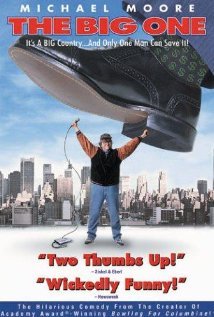“Vanity, Vanity”

| None | Light | Moderate | Heavy | |
|---|---|---|---|---|
| Language | ||||
| Violence | ||||
| Sex | ||||
| Nudity |
What You Need To Know:
In THE BIG ONE, a new Michael Moore documentary about corporate downsizing, Moore inadvertently sullies his own grass-roots image by making the movie a commercial for his new book. This tour encompasses 47 cities across the United States. Along the way, he stops at the headquarters of various corporate giants, who have recently laid off workers. At each stop, he verbally challenges company representatives and attempts to present the CEO with a “present,” such as a “Success in Downsizing” certificate, or a check for eighty cents to pay their Mexican workers for a day.
Moore adopts a self-righteous bent in this movie, and his harangues often wear thin. Some of his scenes are even cloying. Sadly enough, Moore seems too idealistic to be taken seriously, because he fails to accept that unemployment can never be eradicated completely. In his stubborn dogmatism he emerges as not so much a voice for the average American laborer, but as a socialist with a vaguely Marxist agenda. Yet, THE BIG ONE is entertaining and thought-provoking. For all his hot air, Moore does remind us that, despite a booming economy, long-term factory workers who have served their company loyally and doggedly for decades are still being laid off.
Content:
(So, ACap, L, M) Socialist anti-capitalist worldview; four obscenities & five vulgarities; and, miscellaneous immorality including pestering people.
More Detail:
Yes, it is true. The beloved hero of disenfranchised blue-collar workers everywhere has fallen prey to a bit of the same egotism that infects the corporate CEOs he harangues and maligns. His new film, THE BIG ONE, falls far short of the standard set by his first documentary, ROGER AND ME, a clever and far-reaching masterpiece in which he exposed the dark underbelly of General Motors and its cut-throat corporate policies. With that movie and his short-lived television series TV NATION, in which he was an average Joe interviewing an assortment of loonies, Moore positioned himself as the voice of the common man ( a voice crying out in the wilderness against the soulless corporate machine.
With THE BIG ONE, however, Moore inadvertently sullies his own grass-roots image. His new movie is largely a self-aggrandizing documentary of his own book tour. This tour encompasses 47 cities across the United States, and along the way he stops at the headquarters of various corporate giants, such as Proctor & Gamble and Kaiser Permanente, who have recently laid off workers. At each stop, he verbally challenges company representatives and attempts to present the CEO with a “present,” such as a “Success in Downsizing” certificate, or a check for eighty cents to pay their Mexican workers for a day. These parts of the film are funny; the offices are largely guarded by stiff corporate clones who seem entirely bereft of humor or irony. Their intense discomfort and even hostility certainly reinforces Moore’s assumption that corporate management lacks even basic humanity and plays well against Moore’s affable yet pointed barbs.
Moore adopts a self-righteous bent in this movie, and his harangues often wear thin. Some of his scenes are even cloying, especially one in which he hugs a recently laid off auto worker and offers condescending words of contrived “empathy.” Some of his supposedly oppressed workers are genuinely sympathetic, but some prove otherwise. It’s hard to feel sorry for a bunch of college-aged Borders bookstore workers who whine about health benefits, for example. Moore’s world is often too black and white, and his demands are unrealistic. For example, he advocates a law that would prohibit companies from laying off workers when the company is turning a profit. He dismisses the possibility that some welfare recipients might actually prefer a free check to cleaning toilets. Sadly enough, Moore seems too idealistic to be taken seriously, because he fails to accept that unemployment can never be eradicated completely. In his stubborn dogmatism he emerges as not so much a voice for the average American laborer, but as a socialist with a vaguely Marxist agenda.
Even worse, the brief vignettes at corporate high-rises are outnumbered by lengthy clips of Moore delivering stand-up comedy at various venues along his tour. His comic routine is adequate at best. The movie’s inordinate focus on Moore seems to assume that his cleverness is unparalleled ( the camera hangs on his every word and expression. Such camera-worship is inappropriate not only because Moore is no longer as clever as he thinks he is, but because the man has acquired a shall-we-say unkempt, unhealthy appearance that does not translate well on film.
Yet, THE BIG ONE is entertaining and thought-provoking at times. For all his hot air, Moore does remind us that, despite a booming economy, long-term factory workers who have served their company loyally and doggedly for decades are still being laid off. However unrealistic his ideals, Moore does justifiably call corporations to task for treating their employees inhumanely and failing to reward loyalty and long-term service. In his final blitzkrieg, Moore visits Nike – the jewel in the crown of his corporate-bashing campaign – and demands to speak with Phil Knight. Amazingly, Knight agrees to sit down with Moore and give ear to his lobby.
When Moore asks why Knight employs Indonesian workers, the Nike chief replies that he does not believe that Americans truly desire to make shoes. This sounds like a pat answer, but maybe he has a point. America’s rapidly eroding work ethic and more bloated sense of entitlement may really have thinned the ranks of workers willing to toil over a pair of Air Jordans. Ironically, this idea is subtly reinforced earlier in the film, when Moore sympathizes with several disgruntled welfare recipients. When someone suggests to these women that available jobs are plentiful, they balk at accepting a minimum-wage job, claiming that the wage is too small to support a family.
Such contradictions expose the complexities that Moore ignores, but his fundamental point is a valid one. Corporate America does bear some responsibility for fraying work ethics with its money-grubbing policies and cold treatment of its workers. We would all do well to remember that the corporate machine is put into motion by human beings. A sense of community and decency that comes from the top, i.e., management, might help shore up America’s badly eroded values and even boost commerce by reinvigorating our entrepreneurial spirit.
At his best, Moore himself can build this sense of community from seemingly impossible material. I still remember a TV NATION episode in which he spent a day at an amusement park with a white supremacist. Moore treated the man like anyone else, with an easy-going amiability and common respect, so that ultimately even a racist proved both human and likable. Despite all of Nike’s recent bad press, THE BIG ONE finally exposes Phil Knight as – well, sort of an okay guy. It is Moore who has lost some of his charm.


 - Content:
- Content: 






